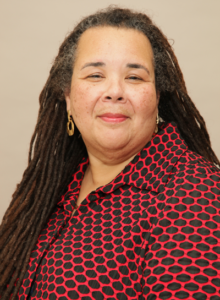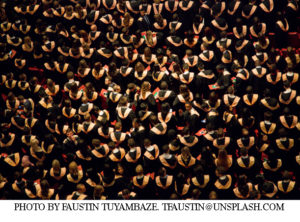
Personal Practice Aimed @ Austere Reality
Higher education is a by-the-book, highly structured reality. From syllabus design (written for students as well as for administrators) to navigating the tenure track process; from classroom lesson planning to student assessments; as well as the preconceived even contrived ways articles and books are selected for publication – those of us who teach in the academic world participate in a rigid reality.
For a scant few colleagues, this rigorous reality creates spaces for thriving and the production of new knowledge. It is the promise of this constructed reality. Dangerously, the same austere reality creates ease and opportunity for those who are harbingers of racism, sexism, classism, and heterosexism to have tremendous platforms of harm against colleagues and students of color. The strata of oppressive, hegemonic forces in the larger politic of U.S. society are duplicated in the reality of higher education with too few opportunities for checks-and-balances of justice and equity. Subtle and blatant acts of dehumanization go unchallenged. Gestures of ignorance and insensitivity are commonplace. Those colleagues who routinely wield their biases, prejudices, ill wills, and ignorance toward people of color and non-white cultures are too often gatekeepers in this reality. Challenged to navigate this strange reality and stymied to negotiate with persons who would see us fail, there is little sanctuary for us unless we create it for ourselves.
While scholarship is my passion and joy, I never feel at home.
My experience of displacement/up-rootedness is neither unique nor rare. For African American women and other colleagues who are othered and systemically marginalized, the reality of education is designed so that we remain strangers, even in the familiarity of academic spaces. Our outsider status is galvanized by the white feminist patriarchs, also known as patriarchs-in-drag, who refuse to do critical reflection on relationships with othered women and people of color. Elisabeth Schussler Fiorenza dubbed this experience of oppression in its many forms as kyriarchy. While naming the experience does not alleviate the circumstance, it does make me feel oriented…known.

To never be at home is to contend with the accusations that we cannot do “classical” scholarship while at the same time reeling from the critique that our ethnic/cultural approaches are quaint, interesting…exotic. Our work and scholarship is othered along with our personhood. This constant confusion sends firm messages that we are not safe, not welcomed to be authentic or real. In the midst of this zero-sum experience of hostility, we are expected to be grateful for posts designed for occupation by white men. In this environment students quickly clue into those who are unwelcomed and deemed to be without authority, making our classrooms spaces unnecessarily conflictual and contentious. We are not at home. I have often heard othered colleagues describe this reality as the experience of being erased. Surely, as those who are Imago Dei, made in the image and likeness of God, we cannot be summarily negated.
I am not sure when I started this habit, but it helps me survive/cope. Each spring, after commencement, I bring a laundry basket to my campus office. I gather up those personal items that adorn my office. I pack up the family photos, artwork, cards, and gifts given by students and friends throughout that year. I pack up my coffee mug, teapot, and the snacks in my desk. I balance my potted plants on the very top so they do not get damaged or squished. With heaping laundry basket in-hand, I move out of my office. Once at home with my laundry basket, I incorporate those items into the décor of my home. My office plants are nestled among the other plants in my living room, home office, and bedroom. The artwork and other items find a place on the shelves and in the bookcases. Then, in late summer, as the fall semester approaches, I make the decision to move back into my office – or not. If I move back in, I go around my house picking and choosing those art pieces that will adorn my campus office and assist my work in the coming year. I discuss with my plants and ask for volunteers to come to my campus office. Once back in my office, I carefully place the photos, paintings, sculptures, and plants. I move back in, only for the year. Knowing I will move out gives me strength and courage.
Each year, this ritual helps me navigate the death-dealing space that is the academy. It reminds me of my choice and my freedom. This ritual rekindles my own agency and intrinsic power. I move back in because of my own choice and not out of obligation, confinement, nor to stave off erasure by these institutions. Those political practices designed to divide and conquer, which are meant to keep us feeling unwelcomed, are weakened when I exercise this agency. Moving out of my office each spring lets me know I am free to leave the institutions that do not nurture me or my kind. Knowing I have a choice helps me keep my rage in check.
Moving into and out of my office reminds me that I am not homeless.
The confusion, disarray, and disturbance that would reasonably result from being unwelcomed has little sting and warrants only momentary guile when I remember that our particularity is our gift to the world from the Divine. We are a people for whom this racist, sexist, homophobic, kyriarachal academic world is a reality that requires the skills of ornery-ness and imaginative cunning—skills for which we are quite adept. The knowledge and belief that the love, sacrifice, and values of our ancestors and wisdom-kin are steadfast provides hope. Audre Lorde wrote, “In our work and in our living, we must recognize that difference is a reason for celebration and growth, rather than a reason for destruction” (Oberlin College Commencement Speech, 1985). A Luta Continua.

Leave a Reply